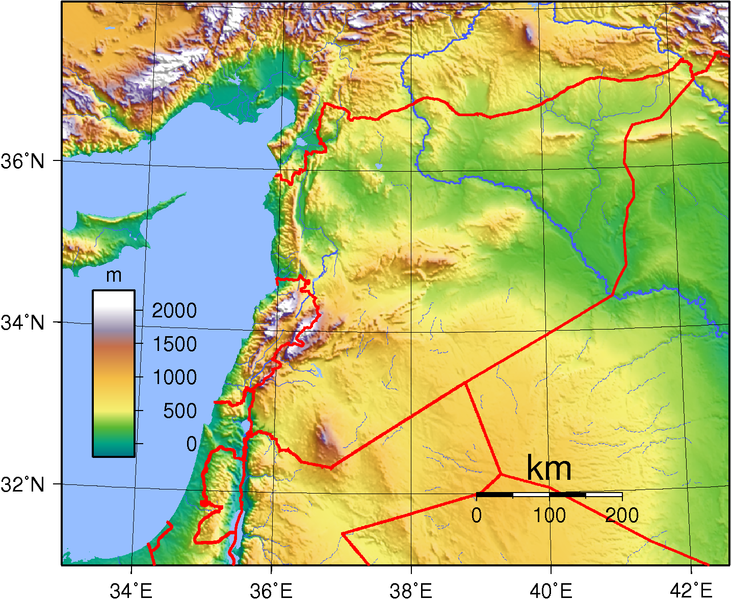 |
| It's just hard to take someone seriously as a villain who looks so much like a turtle. |
I believe Obama is absolutely right to ask Congress for permission before taking action on Syria. It is the legal requirement, and he needs this kind of political backing in order to take the action that is really needed. He needs to do more than just lob a few missiles. He also needs the backing of the Arab League—which he does not yet have.
If he gets this support, however, he needs to take advantage of this formal mandate to do something substantive. Unless there is a clearly-defined and meaningful military target, firing missiles at Assad while leaving him in power is only likely to enhance his prestige and his position. And the debate has given him ample time to protect any meaningful military targets from such a strike. So this approach seems worse than useless—really an admission of American weakness. Sanctions invariably hurt the poor, not the regime. Even doing something that would topple the Assad regime might be counterproductive from the American perspective: the strongest element of the opposition is Islamist.
Accordingly, if Obama is going to do anything, he has to do the full monty. The only useful alternative is a full-scale invasion to overthrow the government.
No doubt this sounds crazy. The US is stretched financially and militarily and in recession. There is no stomach for more Middle Eastern adventures. Interventions in Iraq and Afghanistan have bogged them down for years.
This is one reason why a full invasion is necessary: to prove American resolve. To prove that America cannot be scared off, as the Japanese hoped Pearl Harbor would.
Invading Syria need not be the expensive proposition Iraq and Afghanistan have turned out to be. Iraq and Afghanistan involved one fundamental and obvious mistake, that need not be repeated: there need be no nation-building. Go in, take out the regime, get out. If you recall, the matter of overthrowing the regime was, in both prior cases, extremely easy. Syria would be easier. It is a smaller piece of land, more accessible from the sea, and it has almost no natural defenses. It is ideal tank country. Moreover, the Syrian military is already fully engaged in fighting the rebels; the use of chemical weapons suggests that their position is desperate already. The US has a strong ally in Turkey, with a long border to the north; and another ally in Jordan, to the south, close to the Syrian capital. One fast pincer movement.
 |
| Boots. Ground. Deal with it. |
If the US then just pulls out, I see no problem. By going in and taking out a regime easily and efficiently, it automatically ensures that any succeeding regime will be sensitive to US pressures. What it did easily once, it can do easily again.
But if it really must mess around with democratizing and all that, there is a simple solution available here that was not available in Iraq or Afghanistan: let Turkey do it. Turkey is interested these days in extending its influence in the Arab world. Syria was, not so long ago, Turkish/Ottoman territory, so it is a natural sphere of influence. Turkey has the manpower to do it, and the supply problems would be minimal. Turkey is a fellow Muslim country, so it would look less like “western interference.” And Turkey is a functioning democracy.
Can the US afford it? Maybe they don't have to. Saudi Arabia and Qatar have declared against Assad; they are concerned with the fate of the Sunni majority in Syria. Very well—their own militaries are not large, but their contribution can be to help fund the invasion.
 |
| Absolutely. No. Natural. Borders. |
The result: the Syrian people would be free of a dictator; the next dictator would think long and hard before using chemical weapons; American prestige in the Middle East would be restored, and US concerns would be heeded; Turkish prestige in the Middle East, as a functioning democracy, would be enhanced; Syria would have a decent chance at democracy; and Iran would lose its only ally in the region.
Of course, if Obama loses the vote in Congress, as he is likely to, it’s all off. For now. But he can still do two things. First, arm any factions he can identify in Syria who are genuinely pro-Western, if any. Second, start beating the war drums. It took a long time to build up a coalition and popular opinion against Saddam. This administration has barely begun to do the same against Assad. It was not long ago that Hillary Clinton was characterizing him as “a reformer.”













No comments:
Post a Comment